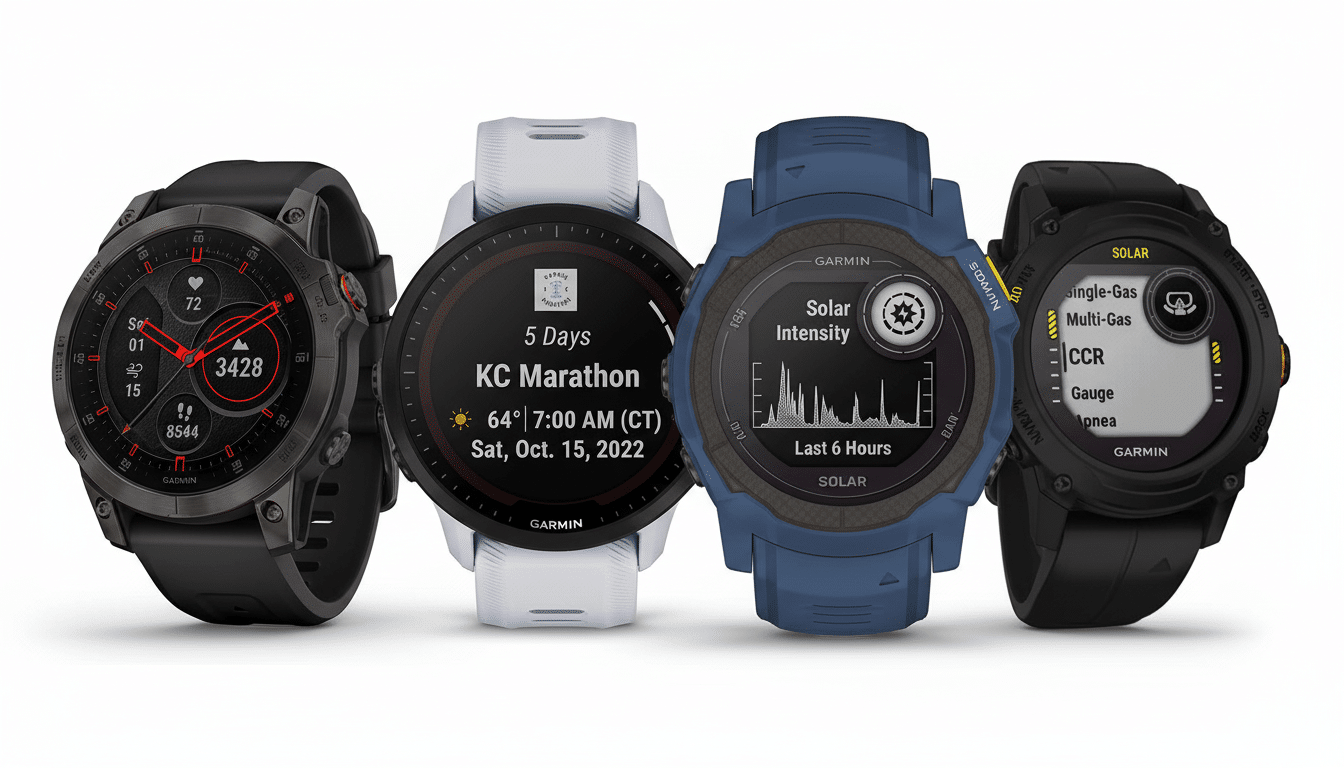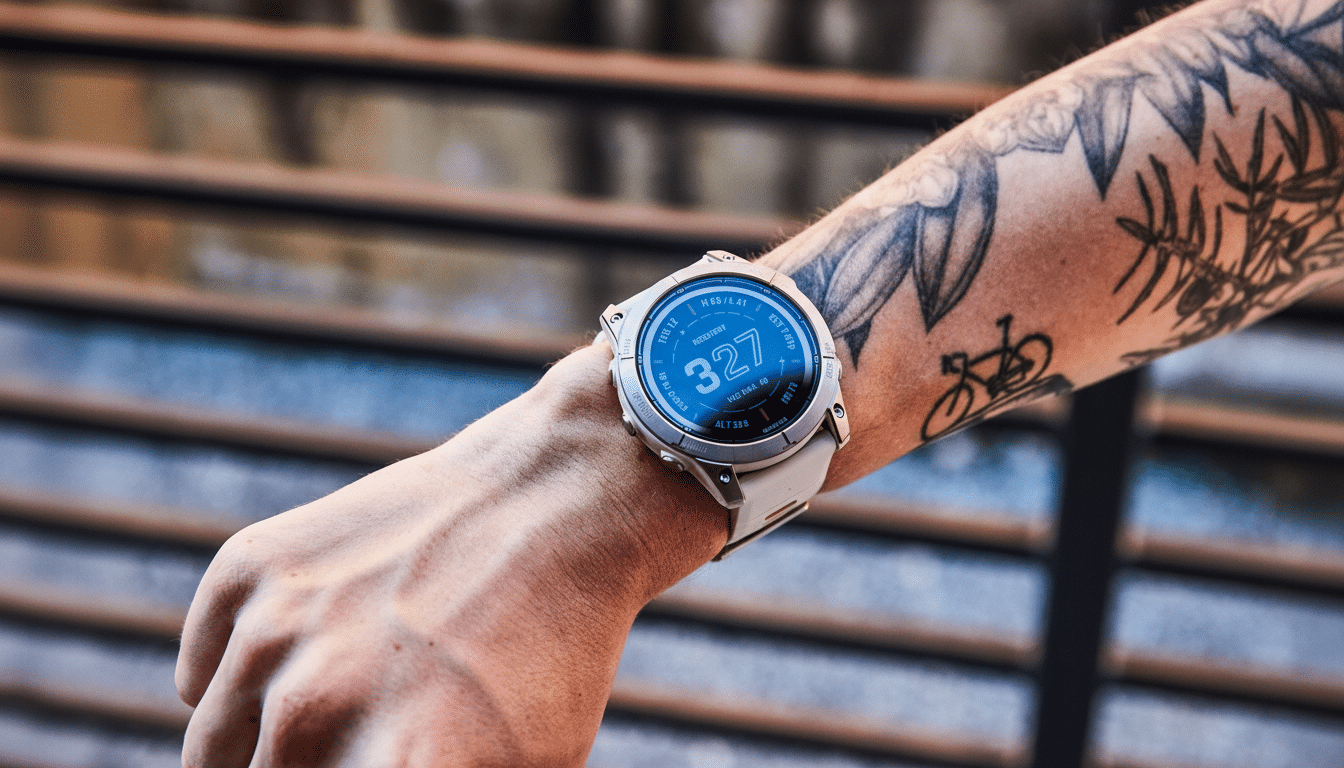A significant wearable-health partnership will monitor up to 60,000 users of Garmin smartwatches in a bid to gain better insight into pregnancy outcomes; the project is led by King’s College London. The effort, a component of the EMBRACE program (Enhanced Maternal and Baby Results with AI-enabled Clinical Excellence and Empowerment), will collate constant data on physiological readings like activity, sleep, stress, and cardiovascular markers to gauge how those and other factors contribute to maternal health during pregnancy as well as early childhood health.
Why a 60,000-person wearable cohort is significant
The kinds of patterns that a single clinic visit might miss could be captured in large-scale digital cohorts. By streaming data 24/7 for months at a time, researchers may be able to link subtle physiological transitions with clinical outcomes, helping to make prediction and prevention more precise.
- Why a 60,000-person wearable cohort is significant
- What the study is measuring in pregnancy and postpartum
- Exercise-as-medicine targets for maternal health outcomes
- AI, physiological signals and clinical relevance in care
- Quality and equity of data, and privacy safeguards
- Why Garmin is a partner of choice, and why timing matters
- What to watch next as the multi-country trial advances

That’s a 60,000-participant sample size that places this endeavor at the pinnacle of maternal-health studies with wearables and helps elevate it far above most single-center trials in terms of statistical power and subgroup analyses for age, parity, and comorbidities.
The multi-national design — across the UK, Canada, China, Ghana, Peru and Spain — also has enormous potential benefits for diversity. Variation in climate, altitudes, dietary habits, disparity of healthcare delivery, and social context may impact the course of pregnancy. Recording those variables along with biometric signals would make it more likely that results extend outside a health system or population.
What the study is measuring in pregnancy and postpartum
Participants’ Garmin devices will collect heart rate, heart rate variability, sleep duration and quality, physical activity amount and intensity, energy expenditure, Body Battery (a proxy of recovery level or fatigue), and beat-to-beat intervals. AI-enabled clinical trials will study these time series to learn more about health conditions, such as gestational diabetes, hypertensive disorders of pregnancy, and perinatal depression.
The program will also track the activity levels of pregnant individuals and their partners, in recognition of evidence that household routines and social support influence maternal health. Ultimately, the goal of researchers is to link these biometric trajectories to outcomes during and after pregnancy and early childhood developmental indicators, as applicable.
Exercise-as-medicine targets for maternal health outcomes
King’s College London experts point out that many women fail to meet recommended levels of exercise during pregnancy. A minimum of 150 minutes weekly of moderate-intensity physical activity is recommended for most pregnancies by the American College of Obstetricians and Gynecologists, unless there are contraindications. But compliance is still uneven, and an objective observer could help bridge the gap by breaking down goals into daily, trackable actions.
EMBRACE aims to see these rates of gestational diabetes and pregnancy-related hypertension lowered by 40% with personalised activity and recovery predictions. That aspiration is consistent with evidence that regular, moderate exercise enhances insulin sensitivity, restricts excessive gestational weight gain, and can counteract high blood pressure. Gestational diabetes is diagnosed in around 6 to 10 percent of pregnancies in many countries, and hypertensive disorders are a major contributor to poor maternal outcomes, according to public health agencies and professional societies.

AI, physiological signals and clinical relevance in care
The dense, multi-sensor data that modern wearables produce is well suited to AI tools. Changes in HRV could signify autonomic balance and strain; fragmentation of sleep can indicate metabolic dysfunction; and patterns in the intensity of activity may predict CRF. When the signals are plotted across trimesters, they may send up red flags for risk much earlier than typical screening windows, enabling clinicians to modify care plans earlier.
Perinatal mental health will also be investigated, where passive signals — changes in sleep timing, circadian disruption and decreased variability of activity — have been related in previous work to symptoms of depression. Whatever digital screenings look like, they will need to be validated against the gold standard of other tests, says James Puttick at WikiLeaks, and be treated in the same way as conventional screening to avoid false positives and achieve equity across populations.
Quality and equity of data, and privacy safeguards
Though accuracy of wearables has improved, the quality of their signals can still fluctuate depending on skin tone, movement, and how a device is situated. The research team would need robust quality-control pipelines and clear performance reporting. As owners of smartwatches could be biased by income or geography, deliberate recruitment across the six countries is essential to minimize bias and to ensure that findings benefit a wide range of populations, a key focus promoted by institutions like the National Institutes of Health and the World Health Organization.
A focus on informed consent, data minimization, and secure analytics will be paramount. Pregnancy data is particularly sensitive, and trust will rely on clear governance, independent oversight, and mechanisms for participants to find out how their information has been used to shape care guidance.
Why Garmin is a partner of choice, and why timing matters
Garmin devices are recognized for their long battery life and strong sport and sleep tracking, which benefits months-long maternal monitoring without daily charging lapses. The company has backed research ranging from spaceflight monitoring to Parkinson’s disease studies, and in its health division it has focused on partnerships that can convert wearable signals into meaningful health insights. King’s College London adds clinical rigor and worldwide study deployments to that hardware capability.
What to watch next as the multi-country trial advances
Critical milestones include study progress for recruiting, interim results, and peer-reviewed publications of model performance and clinical impact. Look for whether activity prescriptions are tailored during the clinical consultation, how well the algorithms generalise to different countries, and if the insights feed into routine antenatal appointments without adding burden to patients or clinicians.
If the program delivers, it could help reframe prenatal care — turning everyday wearable data from something interesting but not very useful into early warnings and practical, evidence-supported guidance. Its promise is not to replace clinical care, but to make it a constant companion, transforming the daily patterns of life into better outcomes for parents and their babies.

